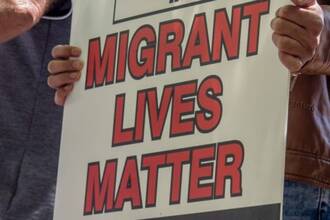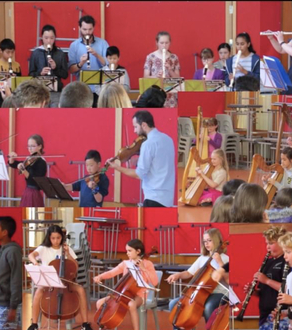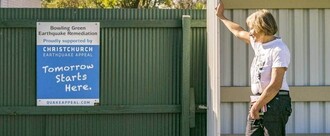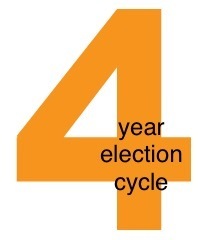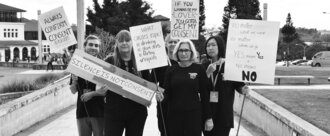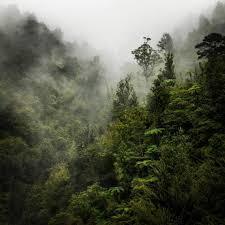-
Protect Porirua East!The proposed rules in the District Plan would enable a huge 25 year housing development programme in eastern Porirua. The project will mean over 1000 state homes knocked down, families displaced and private property acquired under the Public Works Act to free up land for property developers. The plan will see an additional 2000 houses for private sale crammed into the geographically small suburbs of Waitangirua and Cannons Creek. The main theme of the proposed district plan is to allow greater housing density, which is needed, but currently it does so in a way that discriminates on social class. Under the proposed plan the generally middle class suburbs become the low density General Residential Zone and the generally working - class suburbs become the medium density residential zone. This means reduced amenities for the east only! The plan in it's current state doesn't go far enough to tackle climate change. Porirua has an empty city centre that has space for apartment style housing that is walking distance to public transport and amenities. This space should be utilised before digging into our green belt. With over 1000 houses set to be demolished in the East we need to ensure that waste is managed and minimised, and the new builds bring an opportunity to used renewable energy sources. We need a Porirua that all people can get around and the community can live in. Our current housing stock doesn't meet the needs of our disabled and ageing whānau. Building new homes and spaces gives us an opportunity to make sure that everyone is adequately housed, can age in place and is able to participate in community. If you want to make your own submission you can do that here: https://poriruacity.govt.nz/your-council/city-planning-and-reporting/district-plan/proposed-district-plan/571 of 600 SignaturesCreated by Housing Action

-
Be kind to migrant workers - we need pathways to residencyNew Zealand has trebled the number of workers in the country on temporary work visas over the last 15-20 years. There are now at least 250,000 workers here on temporary work or student visas comprising around 10% of the workforce. Entire industries now depend on these workers. Each year, around 250,000 new temporary visas are issued to replace those leaving. New Zealand has traditionally needed around 40,000 new permanent residents each year to replace the loss of people overseas – primarily to higher-paying jobs in Australia. As a consequence, one in four New Zealand-born Kiwis now live abroad and one in four resident Kiwis are foreign-born. The chance of getting permanent residency is the dream that is used to entice workers and students to try their luck in New Zealand. On average around only one in five are able to do so. New Zealand developed an export education system with promises of residency as part of this process. Today there are over 100,000 fee-paying students – making up 15% of all tertiary students who are paying between $20,000 and $50,000 a year for their undergraduate courses. Many schools in upper-class neighbourhoods have also become dependent on foreign fee-paying students. The desperate desire of many of these students and workers to become permanent residents is being exploited by employers, educational institutions, and the government to boost their incomes. Many work visas are also tied to particular employers. This has been a recipe for an explosion of cases of migrant exploitation. Migrant workers feel trapped whilst they are hoping to transition to permanent residency. The situation for those who have come to New Zealand has been made worse by the fact that the government has trebled the number of migrants being given temporary visas of one kind or another whilst keeping the number being transitioned to permanent residence more or less the same. The competition for places has dramatically increased as a result. Successive governments simply kept raising the bar to qualify by increasing the difficulty of gaining a permanent resident visa. Job categories that previously would qualify a migrant to transition to permanent residency were simply eliminated and the qualifying income and skill levels required were increased without any warning. Over the last three years, this was made worse as the Labour-NZ First government secretly cut the number of people being given residency by 25% to around 30,000 a year. Now, even very-skilled and highly paid jobs no longer qualify for residency. It doesn't make any sense. For example, we need teachers and nurses, but they no longer qualify. At the same time the number of temporary visas granted has continued to grow. For employers, the ability to continually access more and more temporary workers willing to work for minimum or sub-minimum wages has also suppressed wages in these industries for all workers. There was never any incentive to raise pay, provide training needed to hire local workers, or put in the extra effort required to get young people used to a work regime. The workers and students here on temporary visas were essentially lied to. They were promised a transition to permanent residency to entice them here, only to have the rules changed on them after they arrived. It was a terrible betrayal of trust by Immigration NZ on behalf of the New Zealand government. We now have tens of thousands of people who have been living, working, and raising families in New Zealand for a decade or more having to renew their “essential skills” or “graduate job search” visas periodically to do so. They are what the government has been calling “normally resident” visa holders who deserve the right to be given a pathway to residency. Many Pacific workers who came here a decade more ago and also made New Zealand their home but may have overstayed their original visas deserve the same chance. We have to collectively take responsibility for the terrible situation that now exists for vulnerable migrant workers living in our communities. The Covid-19 crisis gives us a chance to fix the problem we have collectively created. We can't replace the workers and students now here for the foreseeable future. In fact, it would be a mistake to return to the over-reliance on temporary work visa holders again in the future. We need to create a new “pathways to residency visa” that allows the government to guarantee permanent residence to migrant workers already here once certain conditions are met. As an example, this was done for dairy farm workers in Southland on Essential Skills visas after five years service. We can choose to use the pathways to residency visas to incentivise people to go to the industries and sectors of the economy that need them without tying them to particular employers which has been proven to lead to super-exploitation. It makes sense to offer those workers already here pathways to residency if they desire it.17,309 of 20,000 SignaturesCreated by Anu Kaloti
-
Save the Wellington Music CentreSaturday morning music has been a New Zealand institution since 1957. It provides an opportunity for kids from all sorts of backgrounds, who otherwise wouldn’t be able to afford lessons, a chance to learn an instrument and to develop into life long musicians. Wellington Music Centre is funded through the Ministry of Education’s out of hours programme, providing lessons and affordable instrument hire to any child up to high school, in Wellington. Closing the Centre will prevent kids from discovering their musical passion and make the Wellington music scene less diverse and inclusive. Island Bay School must make efforts to find another solution to any problem it has hosting the Centre. One that continues the long lasting positive impact on kids in Wellington, the cultural capital. We ask the School to keep it open and work with the Education Ministry, the community and other experts on ways to manage their administration problems. The solution needs to allow the children of Wellington access to affordable lessons.578 of 600 SignaturesCreated by Louis Holland

-
End work place exploitation in Tokoroa nowWe want all the citizens of Tokoroa and all who support them to sign this petition to help end exploitation in Tokoroa and set an example for the rest of NZ. Three workers were employed at the two Challenge NZ stations in Tokoroa. They were deliberately exploited and abused over three years by the franchisee and his son. They had to pay money to keep their jobs. They also had to work 15-20 extra hours a week for no pay. OneUnion is a union protecting workers in small workplaces. The union accuses the father and son of extorting $130,000 from these workers. The three workers were at the mercy of these two men because they relied on them for their visas. OneUnion has filed claims against the franchisee and his son in the Employment Relations Authority. The father ‘sold’ the business to his son to avoid the legal consequences. We must not let them get away with it. Their criminal behaviour was extremely cruel. One of the workers was not allowed to leave work when his wife was in labour. A young mother was forced to send her baby to India so she could work longer hours (for free) for the employer. Both were told that if they caused trouble they would be deported. These two men are greedy and ruthless. We as a community must send a strong message that criminal exploitation and lack of human decency will not be tolerated in Tokoroa. This behaviour is not the kiwi way and has no place in Tokoroa. Please read the attached two articles published by the OneUnion that detail the full story. https://thedailyblog.co.nz/2020/09/21/exploiter-extorts-and-blackmails-workers/ https://thedailyblog.co.nz/2020/09/29/casual-cruelty-destroys-young-mums-boss-demands-35000-to-prevent-dismissal-more-evil-than-we-thought/ OneUnion and Migrant Workers Association are working together to get justice for these workers. We advised Challenge NZ of the franchisee’s criminality. We have provided our case file to Challenge NZ and demanded they investigate. WHAT CAN YOU DO? Tokoroa has a proud history of fighting for workers’ rights. We have no doubt the good people of Tokoroa will show the rest of the nation how to win justice for workers who are exploited. Challenge NZ needs to support the franchisee and his son in making this right. A worker would already be in prison if they did a fraction of what these two men did. Blatant exploitation is becoming a normal state. New Zealanders have to step up. Communities have to come together and force exploiters to apologize and make amends. Please sign our petition and get your family and friends to sign it too. *UPDATE* - Tokoroa Rally Against Exploitation Kia Ora All, Unfortunately, the rally for this Sunday (16 November at 1pm) has had to be postponed. But we still want you to come to a meeting the following Sunday at the same time. Since you signed our petition, we have received more cases of exploitation in Tokoroa by unscrupulous employers. It seems workplace exploitation and abuse in Tokoroa is wider than we thought. Most of the victims are having to work long hours for no wages and then threatened or dismissed if they complain. It’s difficult to solve this level of abuse from Auckland. We need your help, We would like to meet with you and other locals. Please come and share with us your advice on what we can do about it. Hopefully we can form a local group to work with us so we can organise a campaign to end exploitation in Tokoroa. End Workplace Exploitation in Tokoroa New Sunday Meeting 1pm, 23 November 2020 Tokoroa Cosmopolitan Club 275 Balmoral Road TOKOROA If you can attend the new meeting or offer any support please email us at, [email protected] Nga Mihi Matt McCarten941 of 1,000 SignaturesCreated by Matt McCarten
-
Help Dame Sue Bagshaw build her Youth HubWe are all concerned about our young people, and regular health services do not always provide the spaces they need. By signing this petition we show our support for Youth Hub Trust chairwoman Dame Sue Bagshaw who has worked her entire life toward the realization of a youth hub in Christchurch. She has helped thousands of young people find a way through difficult periods in their lives. Now the dream is about to come true were it not for some people who do not understand the significance of such a facility and are trying to stop the project. This new facility will provide day support as well as some temporary housing. For years we have understood the mental health issues in Christchurch due to a succession of disasters, the site was gifted to the trust and in my eyes the building will not particularly impact on the surroundings. Every town should have such an opportunity. The facility will include 22 one-bedroom units, one four-bedroom and four three-bedroom units as well as accommodation for two supervisors and a site manager. To be eligible for housing the young people must be in education/training or looking for employment. There will be a healthcare centre, office spaces for 13 different youth-related organisations, private and communal outdoor living spaces, a basketball court, cafe, events centre seating up to 200 people, a rooftop greenhouse and indoor recreation and art space.No alcohol or drugs will be allowed and the Christchurch Methodist Mission will manage the housing. Please sign this petition so the trust can present this to the Christchurch council as support for their plans. https://www.stuff.co.nz/the-press/news/122915886/central-christchurch-residents-fighting-muchneeded-youth-hub/868 of 1,000 SignaturesCreated by Gerrie Ligtenberg
-
Stop the Minerals Forum - regenerative economy not extractive economy!A regenerative economy is more than a ‘prosperous, low-emissions economy’. It means creating abundance and healthy environments and workplaces by using traditional knowledge, current sustainable practices and new innovations for responsible resource use, production and distribution. It regenerates rather than degenerates. Our current economy is built on destructive mineral extraction and intensive farming that mines our whenua to make commodity products that are mostly exported overseas. It’s polluting and wasteful at all stages of the process, produces vast amounts of climate changing greenhouse gases, increases the division between rich and poor, and depletes resources for future generations to come. That's why church groups, students, climate activists, social justice groups, anti-mining protectors, union members and individuals across Aotearoa are bringing this message to the 2020 Minerals Forum on October 13-14th: Kua Nui! Enough is enough! We want a regenerative economy not an extractive economy. "Coromandel Watchdog of Hauraki is in full support of this action. The world cannot afford high emissions dinosaur industries and can mine landfills and cellphones if it wants minerals. We challenge the Minerals Forum to stop wrecking the planet for profit and we challenge the Government to live up to their promises on climate and mining issues now! " said Catherine Delahunty, Chair of CWH, which has been campaigning against gold mining in Hauraki for decades. "The main sponsor of this conference is Bathurst Resources, which is in the process of applying for consent to vastly increase a coal mine in Canterbury, despite having already breached a number of consents for its current mine. Fonterra and the dairy industry will be burning this coal, while they continue to claim their industry is sustainable, largely ignoring the obvious renewable alternatives. It's time to stop digging up fossil fuels and make the switch," said Tim Jones of Coal Action Network Aotearoa. “The mining industry’s only role in a low-emissions economy should be in cleaning up their mess. We want no more permits or resource consents for extraction and urgent decommissioning of all wells and mines" said Tuhi-Ao Bailey of Climate Justice Taranaki, who have been campaigning against oil and gas drilling and synthetic fertiliser since 2011. "These companies will go to the ends of the earth to dig up minerals, and now they want to dig up the seabed - but so far we have managed to stop them, in coalition with Iwi, fisheries interests and local communities," said Cindy Baxter, chairperson of Kiwis Against Seabed Mining. "Our oceans are already in enough peril from other pressures like acidification and warming - there is nothing sustainable about seabed mining." “We are in a state of planetary emergency: the interdependent crises of biodiversity loss and ecosystem degradation and climate change - driven in large part by unsustainable production and consumption - require urgent and immediate global action,” - 'The Leaders' Pledge for Nature' signed by Heads of State and Government of 64 countries (including PM Jacinda Ardern) and the European Union, 30/9/20. For more information on the event and campaign go to: www.StopTheMineralsForum.info Facebook event 'Stop the Minerals Forum 2020' Facebook page 'Stop The Minerals Forum' Coalition group websites: Environmental Justice Otepoti https://ejotepoti.wordpress.com/ Kiwis Against Seabed Mining http://kasm.org.nz/ Extinction Rebellion Aotearoa https://extinctionrebellion.nz/ Climate Justice Taranaki http://www.climatejusticetaranaki.info/ (Lots of articles here) Coal Action Network Aotearoa https://coalaction.org.nz/ Coromandel Watchdog of Hauraki https://watchdog.org.nz/ Oil-free Wellington https://wellington.oilfree.nz/ Oil-free Otago https://oilfreeotago.com/ Some news articles about the mining industry in Aotearoa: Why we’re taking the government to court over mining in the Coromandel - https://thespinoff.co.nz/politics/22-06-2020/why-were-taking-the-government-to-court-over-mining-in-the-coromandel/ Gold mining: a toxic legacy - http://resist.co.nz/gold-mining/ Lessons to be learnt from toxic legacy - https://www.stuff.co.nz/waikato-times/8621609/Lessons-to-be-learnt-from-toxic-legacy Tour reinforces Taranaki residents' fears over stinking plant - https://www.stuff.co.nz/taranaki-daily-news/300097635/tour-reinforces-taranaki-residents-fears-over-stinking-plant Locals brace for row over Pukemiro tip - https://www.stuff.co.nz/waikato-times/editors-picks/9282617/Locals-brace-for-row-over-Pukemiro-tip Rural Waikato residents furious at ongoing plastic waste fire - https://www.newshub.co.nz/home/new-zealand/2020/09/rural-waikato-residents-furious-at-ongoing-plastic-waste-fire.html Onus on Government to remove toxic coal mine waste at Hector – conservationists - https://www.stuff.co.nz/environment/114806519/onus-on-government-to-remove-toxic-coal-mine-waste-at-hector--conservationists645 of 800 SignaturesCreated by Stop the Minerals Forum Coalition
-
Open Letter: Five To ThriveToo many of our children in Aotearoa are missing out on the basics they need to thrive. With political will, we can change this to ensure all of our children have a bright future. We are asking our friends, whānau, and colleagues - Kiwis that care about our children, to sign on to this open letter to ask that every child in Aotearoa gets the five basics they need to do well now, and into the future. To find out more, check out Five To Thrive https://www.fivetothrive.nz/ To keep you updated with the campaign your signature details will be shared with the four organisations leading this campaign; Barnardos, Save the Children, Te Kāhui Mana Ririki Trust, and Whānau Āwhina Plunket.610 of 800 SignaturesCreated by Five To Thrive

-
4-year Parliamentary TermWe support a 4-year parliamentary term to encourage future governments to implement longer term, more forward-thinking, strategic and visionary policies for Aotearoa New Zealand - rather than the current short-term decision making and electioneering cycle. A 4-year parliamentary term was suggested in the 2019 report 'Foresight, insight and oversight' authored by the Institute for Governance and Policy Studies (Victoria University) and the Office of the Clerk of the House of Representatives. In September 2020, the local body organisation Local Government in New Zealand passed a remit supporting a 4-year election cycle. https://www.rnz.co.nz/news/political/392952/new-report-calls-for-four-year-term-more-mps-in-parliament https://www.odt.co.nz/opinion/editorial/four-year-term-worth-debating24 of 100 SignaturesCreated by Megan Blakie

-
Consent Education should be compulsory for First-Year Tertiary StudentsIn a world free from sexual violence, students would be able to learn and achieve, without fear, harm or violence. Students would be able to walk through campus, attend lectures, engage in tutorials, knowing that they are valued, respected, and treated equally. Starting tertiary study is an important time in a young person's life, and sets them up for their entire life course 'pipeline'. When a student faces barriers or trauma during their study, it often has lifelong ripple effects and consequences. Recent research shows that 1 in 3 students will experience sexual harm during study [1], and this mirrors Thursdays in Black's own findings, which highlighted that over 50% of participants had experienced some form of sexual harm during study [2]. Research on wider populations shows that in Aotearoa, 1 in 3 women, 1 in 6 men, and 1 in 2 transgender people will experience sexual harm. Research also shows that women, Māori, Queer/Takatāpui, and disabled students are at significantly higher risk of experiencing harm in comparison to other identities, and that 90% of sexually harmful situations happen between people that know each other, for example friends, relationships, colleagues, or family. At Thursdays in Black, our vision is to improve these circumstances, by mandating sexual consent education for first years students. This education will empower young people by giving them the skills to navigate and create their own healthy sexual relationships, help prevent harmful behaviours, and contribute to the ongoing culture change of tertiary institutions. By teaching these skills to students aged 17-20, we will be setting them up with a kete of tools that will benefit them throughout their life, and help make our communities safer. Yet at present, there is no legal requirement for tertiary institutions to offer compulsory courses to teach students about sexual consent. New Zealand institutions currently have a fragmented approach to consent education, with different institutions offering different levels of engagement, different approaches, and some with out any programmes at all. At Thursdays in Black, we believe that Aotearoa can do better, and see that implementing such an education policy as not only urgent, but long overdue. We request that the Minister pass legislation requiring tertiary institutions in Aotearoa to provide sexual consent education to all first-year tertiary students. Such education should be a research-based program, created with and facilitated by subject matter experts and the sexual violence sector, it should engage student leaders, operate on a bi-cultural model that upholds Te Tiriti o Waitangi, and reflect an intersectional approach that respects the disproportionate impact sexual violence has on specific groups. Tertiary institutions, for the most part, remain out-dated and traditional in their thinking -- often reinforcing a rape culture of power imbalances, misogyny, and toxicity. This does not make a safe environment for our tertiary students. Help make education safe. Sign the petition today to call on the Minister to implement compulsory consent courses for first-year students. 1. Unpublished Phd Thesis by Kayla Stewart, for a preliminary discussion of her findings, see https://www.stuff.co.nz/national/113090659/a-third-of-women-university-students-report-being-sexually-assaulted-what-do-we-owe-them 2. In 2017, Thursdays in Black Aotearoa conducted a report titled ‘In Our Own Words’, which details the extent to which tertiary students experienced sexual violence prior to, and during, their studies You can find it here: https://library.nzfvc.org.nz/cgi-bin/koha/opac-detail.pl?biblionumber=5557922 of 1,000 SignaturesCreated by Jahla Lawrence
-
Supporting paid leave for women after abortionsThe United Nations 2030 Agenda for Sustainable Development has a focus under Goal 5 on safe abortion as part of protecting “human rights and promoting gender equality and the empowerment of women and girls”. Target 5.6 seeks to ensure “universal access to sexual and reproductive health and reproductive rights as agreed in accordance with the Programme of Action of the International Conference on Population and Development and the Beijing Platform for Action and the outcome documents of their review conferences”. We believe that the Holiday Amendment Bill act could be changed to better suit the goals of the UN 2030 Agenda for Sustainable Development and to better support women in Aotearoa. We hope you consider our suggestion as young people and women going into the workforce. As a society, we believe we need to do more to ensure women have equal rights and have equitable working conditions. Thank you for helping us in our fight to remove the word ‘unplanned’ from Ginny Anderson’s Holiday Amendment Bill. Ngā mihi, Lorna Hallett Renee Hamilton Kate Chu Athena Kapralos Ella Murdoch Evie Harrington Bella Redshaw Bintou Fiti-Jaiteh Natasha Taylor Valora Leilua-Tiatia Tia-Rhiena Martin-Upton Nicole Askari Ruby McGovern Sophie Irving187 of 200 SignaturesCreated by Lorna Hallett
-
Moratorium on Mining Permits for Conservation LandIn 2017, in the Speech from the Throne, the Labour/NZ First/Green Government made a commitment to having no new mines on conservation land. The Government has, however, failed to implement this policy, and as a result numerous permits for mining related activity (prospecting, exploration and mining) have been granted across the nation’s conservation estate. This is unacceptable. This campaign is so important, and so urgent that the Royal Forest and Bird Protection Society of New Zealand are now supporting this petition also (from May 2021). Conservation land is highly valued by New Zealanders, and is held by the Government for conservation purposes. It makes up approximately 1/3 of New Zealand's total land area and is simply too precious to mine. There are classes of conservation land including National Parks, public conservation land and marine reserves and other protected lands and waters; public conservation land includes forest parks, scenic reserves, ecological reserves and stewardship land. Stewardship land has been cited as one of the main reasons that the no new mines policy has not been implemented. Some are of the belief that stewardship land is 'low value' and should be excluded from the policy, when in fact, stewardship land includes a range of land, a significant portion of which has very high conservation values; stewardship land contains approximately 28% of biodiversity priority sites. The Hauraki Coromandel region alone has more than 300,000 hectares of stewardship land, including the Hukarahi Conservation Area, the site of the first closure due to kauri dieback on the Peninsula, the Whangapoua Forest Conservation Area, some 5000ha of mature native forest and the Otama Wetland, a part of the nationally significant Otama Dune system. To groundtruth all stewardship land in Aotearoa will take many years, and our conservation land must not be left vulnerable to mining until that happens. The simple fact is that the Government indicating their intent to ban new mines being established on conservation land has resulted in the industry not only rushing to get permits to prospect, explore and mine in areas they want to target, but also lobbying to exclude stewardship land. This can not be a blanket in or out decision - there is too much at stake. Changes proposed in any review of stewardship land must include giving effect to Te Tiriti o Waitangi via negotiations with manawhenua of that rohe. A moratorium would ensure that the question of stewardship land can be considered carefully to ensure that any policy is robust in protecting all conservation land, while not sacrificing some of our most significant areas to mining while the policy is finalised. Support from: https://www.forestandbird.org.nz/themes/custom/forestandbird/images/logo-forest-and-bird-og-image.jpg11,362 of 15,000 SignaturesCreated by Coromandel Watchdog
-
Intergenerational Open Letter for Climate Action NowThis would be disastrous for the youth of today, and for all future generations. Increasing extreme events and sea level rise have the potential to wreck our civilisation and bring misery and hardship to billions of people globally. It is time for climate change to be at the heart of every decision the New Zealand government, now and in the future, makes. The generations of today, and those not yet born demand this of you. For communities in the Pacific this means sea level rise, it means damage to food and water supplies, and for some island communities it may mean losing the islands they have lived on for generations. Here in New Zealand, many of the same issues will threaten our livelihoods and lifestyles around the country. We know the technologies are at hand – renewable energy sources such as solar and wind, hydrogen fuels and many others, but we just need to get on and deploy these as fast as we can. We urge that all New Zealand governments act urgently on climate change, as we must start future-proofing our country economy and mindsets to climate change as we can do this. The Climate Change Commission in its April 2020 letter to government has indicated the way of achieving this - through clean energy and energy efficiency; improved transport systems including public transport; sustainable land use and robust transport, energy and water infrastructure. Through the response to COVID-19, we have seen the power of people to act as a collective. It is time to see to climate action and climate justice, this really is our moment across all generations. We are out of time – we have had the Pandemic – and it is time for action by all.387 of 400 SignaturesCreated by Jim Salinger


